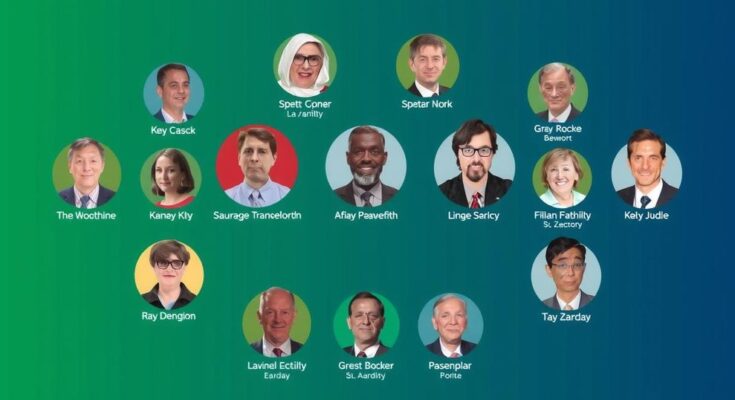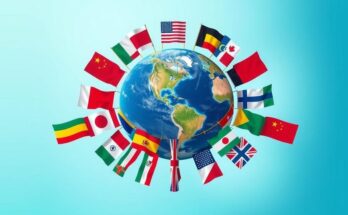The European Union plays a critical role at the UN climate talks in Baku, negotiating with China and developing nations for a significant climate deal. It stands as the largest contributor to climate finance, pledging €28.6 billion from public sources last year. The EU faces pressure to define its financial commitments as discussions aim to raise annual funding to support developing countries significantly. Overall, the EU is committed to leading in climate action amid challenges stemming from historical reliance on fossil fuels.
At the UN climate talks in Baku, the European Union is positioned as a crucial player in achieving a significant climate deal by the end of the week. With the recent U.S. election outcomes favoring climate skepticism, the EU has emerged as a pivotal link between China and developing nations. The bloc is currently focusing on building high-ambition coalitions with nations such as Kenya and Palau. The European Union is the foremost contributor to global climate finance, having allocated significant funds to assist developing countries in combating climate change. With a pledge to attain carbon neutrality by 2050, the EU possesses financial resources comparable to those of China and shares a similar historical footprint regarding greenhouse gas emissions. Despite facing austerity, EU climate commissioner Wopke Hoekstra affirmed the EU’s commitment to leading global climate efforts. There is pressure on the EU to present clear financial commitments for aiding developing countries, as it is recognized as the primary contributor to climate finance. Currently, European financial commitments for climate action are cautious, reflecting the bloc’s economic challenges. Nevertheless, certain EU nations, including France, Sweden, Denmark, Germany, and the Netherlands, have shown remarkable dedication to increasing their contributions internally. Criticism remains, however, regarding the historical reliance on fossil fuels by European countries, which complicates their moral standing in advising developing nations. The negotiations aim to raise yearly funding to support renewable energy projects and climate resilience initiatives in developing countries, with a proposed target between $200 billion and $400 billion, significantly surpassing existing offers. Europeans are advocating for transparency in financial contributions from other nations, including China, to allow for a more comprehensive understanding of global climate financing. Given ongoing debates regarding fossil fuel commitments, the EU has reaffirmed its stance against regression on prior pledges to diminish reliance on fossil fuels, underscoring that the international community cannot afford to retreat in climate action efforts.
The context for this discussion is the ongoing COP29 climate talks in Baku, Azerbaijan, where nations are negotiating pivotal agreements to strengthen global climate action amidst the backdrop of heightened challenges. The European Union has been a central figure in these discussions, particularly in light of the shifting political landscape in the United States, where the recent electoral outcome has cast doubts over its commitment to international climate agreements. The talks are critical as they aim to solidify commitments to bolster financial support for developing countries, thereby facilitating their adaptation and mitigation strategies against climate change.
In summary, the European Union’s role at COP29 is underscored by its substantial contributions to climate finance and its efforts to forge alliances with developing nations and major emitters like China. While the EU is prepared to lead in climate negotiations, it faces scrutiny regarding its historical emissions and current financial commitments. The outcomes of these discussions are crucial for establishing a robust funding framework to combat climate change globally and ensuring that the commitments made in earlier conferences are honored.
Original Source: www.france24.com




